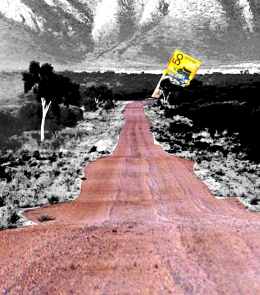Industry calls for road charge change for more funding avenues
 A new report has added weight to the argument that all users should pay for roads, highlighting new ways to fund advanced infrastructure.
A new report has added weight to the argument that all users should pay for roads, highlighting new ways to fund advanced infrastructure.
The report has been welcomed by logistics and business sectors as well as various motoring enthusiasts clubs, showing that support does not only come from professional drivers.
“The fact that Australia’s major automobile clubs, which represent millions of ordinary motorists, have produced a report advocating widespread change underscores the need for a sensible and informed community discussion on future reform options,” said Michael Kilgariff, ALC Managing Director.
“Reports such as this, and the Productivity Commission’s recent report into Public Infrastructure, will help to inform this debate and should be seriously considered by all levels of government.
There was reasonable backlash from some sectors at the mere mention of changing road charges and funding, but it is a debate well worth having.
Industry association Consult Australia's chief executive, Megan Motto, says the idea should not be slammed so quickly.
“Often in these debates, good ideas and public benefit are lost where proper policy debate is overtaken by sloganeering and a misunderstanding of the basic facts. Let’s not fail the public while kidding ourselves that the status quo is working,” said Ms Motto.
“This report is about removing these more arbitrary costs to put in place an approach that reflects how much we actually use our cars: much the same as we are charged for how much electricity we use.
“People must understand that through fuel excise and vehicle registration we are all already opening our wallets every day just to get off the driveway.
Many say that the current system of vehicle charging and investment needs to put under the microscope.
Mr Kilgariff said the report’s conclusion, “that the current system of transport network pricing is no longer fit for purpose”, reflects a growing consensus among peak industry bodies.
“For example, ALC has been calling for a National Road Transport Agreement to establish the objectives, outcomes, outputs and incentives to guide governments in the use and supply of road infrastructure,” he said.
“We also believe a single institution needs to be nominated to lead road tax reform and this report underscores the need for such an Agreement.
On the specific issue of extending road use charging to all motorists, Mr Kilgariff said ALC believes there should be a paradigm shift, from the concept of road infrastructure funded only by government budgets and towards a concept where all users pay.
“Growing pressure on state budgets necessitates serious consideration of where we go from here, because it is becoming increasingly clear the current system will not support maximum efficiency and productivity in the long term,” Kilgariff said.
“But given the potential size and scope of any such reform, the process cannot be rushed and needs to be informed through detailed reports such as this.”







 Print
Print